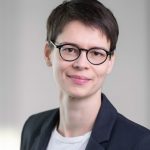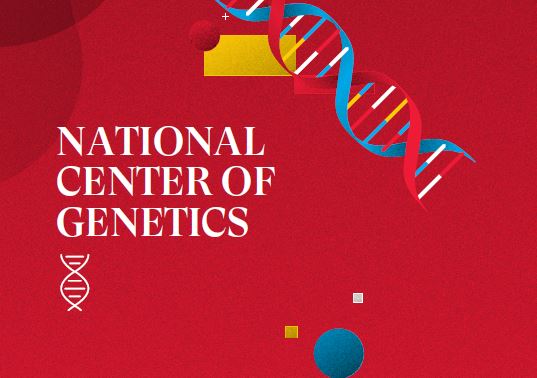- The Laboratory
- Organization
- Departments
- Jobs
- Analysis book
- Contact
- News
- Publications
- Download


![[Annual Report 2020] ONLINE COUNSELLING DURING THE COVID: NCG KEEPS UP EXCHANGES WITH PATIENTS WITH THE HELP OF VIDEOCONFERENCES](https://lns.lu/wp-content/uploads/2021/11/lns_conseil-genetique-22-1280x853.jpg)
The Clinical Genetics Unit of the National Center of Genetics (NCG) has become something of a permanent fixture. Genetic counselling is an essential part of the work of the NCG, and the LNS has been able to continue providing this service during the pandemic. One of the things that helped was a switch to videoconferencing.
Since its creation in 2018, the “National Center of Genetics” (NCG) has covered all aspects of human genetics and offered comprehensive genetic testing to the population of Luxembourg. Genetic counselling, whereby patients and their relatives are provided with detailed and individualized information about genetic testing, any genetic disorder that might affect them or was diagnosed in their family, and about the personal risk attached to it, is of central importance in this process, both before and after genetic testing.
| This is all the more true since, among other things, genetic analysis in the context of hereditary tumour predisposition (such as hereditary breast and ovarian cancer) as well as the corresponding counselling is offered as part of this service. This is one of the core tasks of the NCG, as its head Dr Barbara Klink explains: “We at the NCG are an important player in the Plan National Cancer. COVID-19 has not changed the importance of this mission. Most cancers require rapid action, and continuing to contribute to this as usual has been our main concern since the outbreak of the crisis.” |
 Prof. Dr Barbara Klink |
The same is true for the other genetic diseases that are diagnosed and analysed at the NCG and consequently also discussed in genetics consultations. Dr Barbara Klink: “Our consultations include advice on a wide range of diseases caused by genome defects. Besides hereditary cancer syndromes, these include so-called rare diseases, of which more than 7,000 are known. Other topics covered are prenatal and pre-conceptional genetic counselling, as well as predictive genetic counselling and testing of asymptomatic persons at risk of a genetic disorder known in the family, provided before the first symptoms appear. In addition, we advise family members of patients with regard to the risks they themselves face, and offer genetic tests to make or confirm a diagnosis.”
Typically, a genetic counselling session lasts 1 to 1.5 hours to allow for a thorough and individualized discussion with the patient, couple, or healthy family member. Live exchanges were always preferred, as Dr Barbara Klink explains: “Having an actual conversation allows for direct dialogue, and that’s where really profound counselling is best achieved. We were all the more keen to continue offering this service without restrictions despite the coronavirus crisis.”
The main challenge the NCG faced in this was, of course, social distancing, which came into effect in March 2020. As a result, on-site consultations at the LNS were no longer possible from one day to the next, so an alternative had to be sought out. This was found in the form of tele-consultations, which also found their way into the LNS for other purposes and became an efficient tool, as Dr Barbara Klink explains. New processes had to be developed to enable remote prescriptions, collecting written consent, and minimal digital clinical examinations while ensuring data security.
“The first lockdown meant that the LNS and its department had to postpone all non-urgent appointments indefinitely. As a result, on-site genetic counselling was cancelled, so we tried videoconferences as an alternative. Many patients and their relatives accepted these dialogues in virtual mode, and the NCG staff came to appreciate them as a useful interim solution as well. Over the course of 2020, we were gradually able to offer on-site consultations again, where we can discuss more complex issues with the patients or examine them clinically and genetically.”
“The bottom line,” continuous Dr Barbara Klink, “is that tele-consultations also contributed to the fact that the number of genetics consultations in 2020 actually increased, from 1,360 to 1,947. What’s more, apart from genetic counselling, we also quickly started making extensive use of virtual meetings with our colleagues internally as well as for contacts with hospitals and other partners in Luxembourg and abroad. These multidisciplinary meetings are an important part of our work, and when face-to-face meetings were no longer possible, videoconferencing helped us a lot there as well. It is still used for this sort of meeting with doctors in hospitals.”
Against this background, Dr Barbara Klink is sure that online conferences will continue to be an important option in the “new normal”: “It is true that virtual exchanges offer somewhat less of a social touch than real-world conversations, but conversely they make distances shorter for all participants, and some processes are more efficient as a result. From this point of view, with the changeover to video meetings we have brought about something new out of necessity, the advantages of which we will continue to use for ourselves and hence for our patients.”
Download the LNS Annual Report 2020: https://lns.lu/publication/annual-report-2020/
